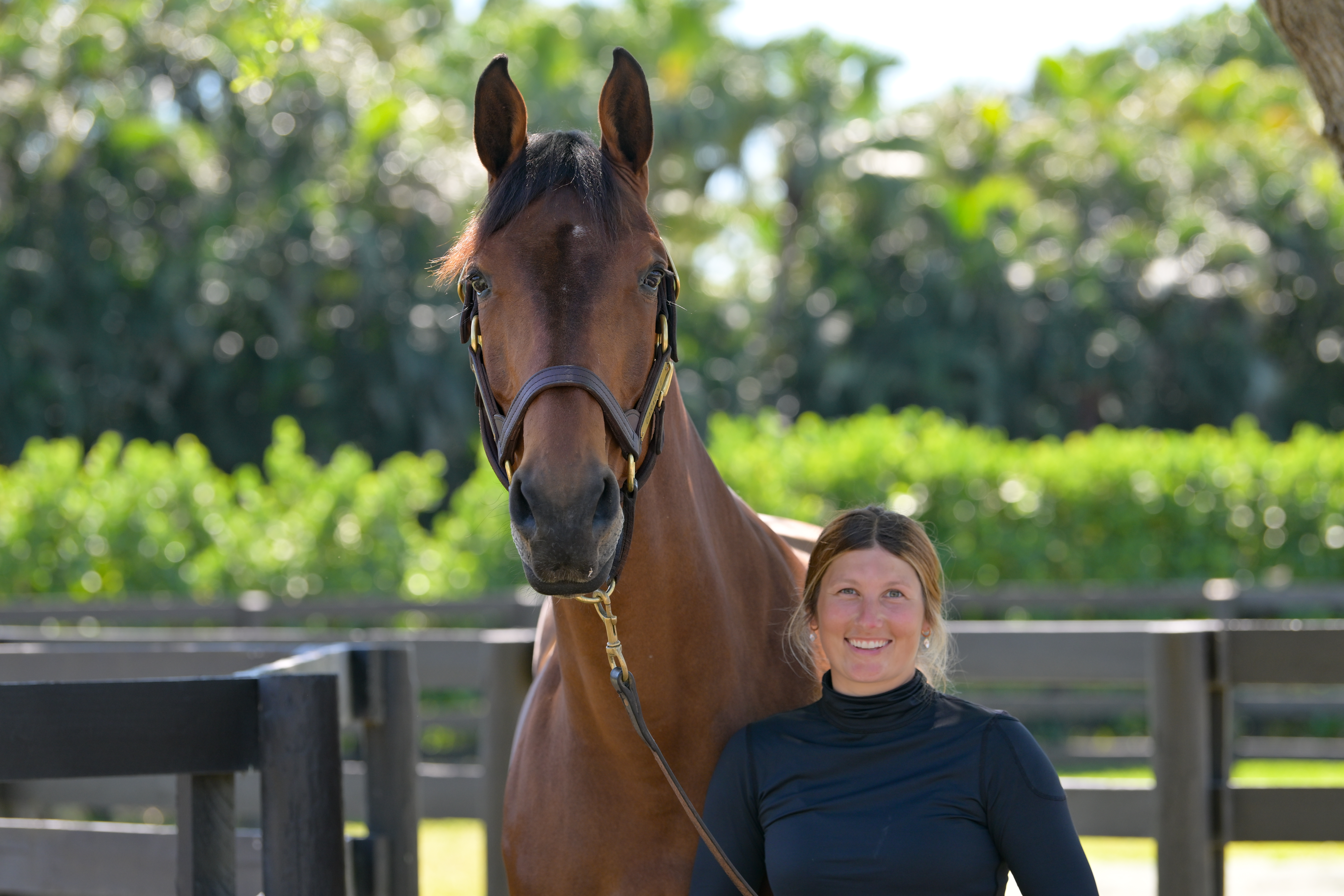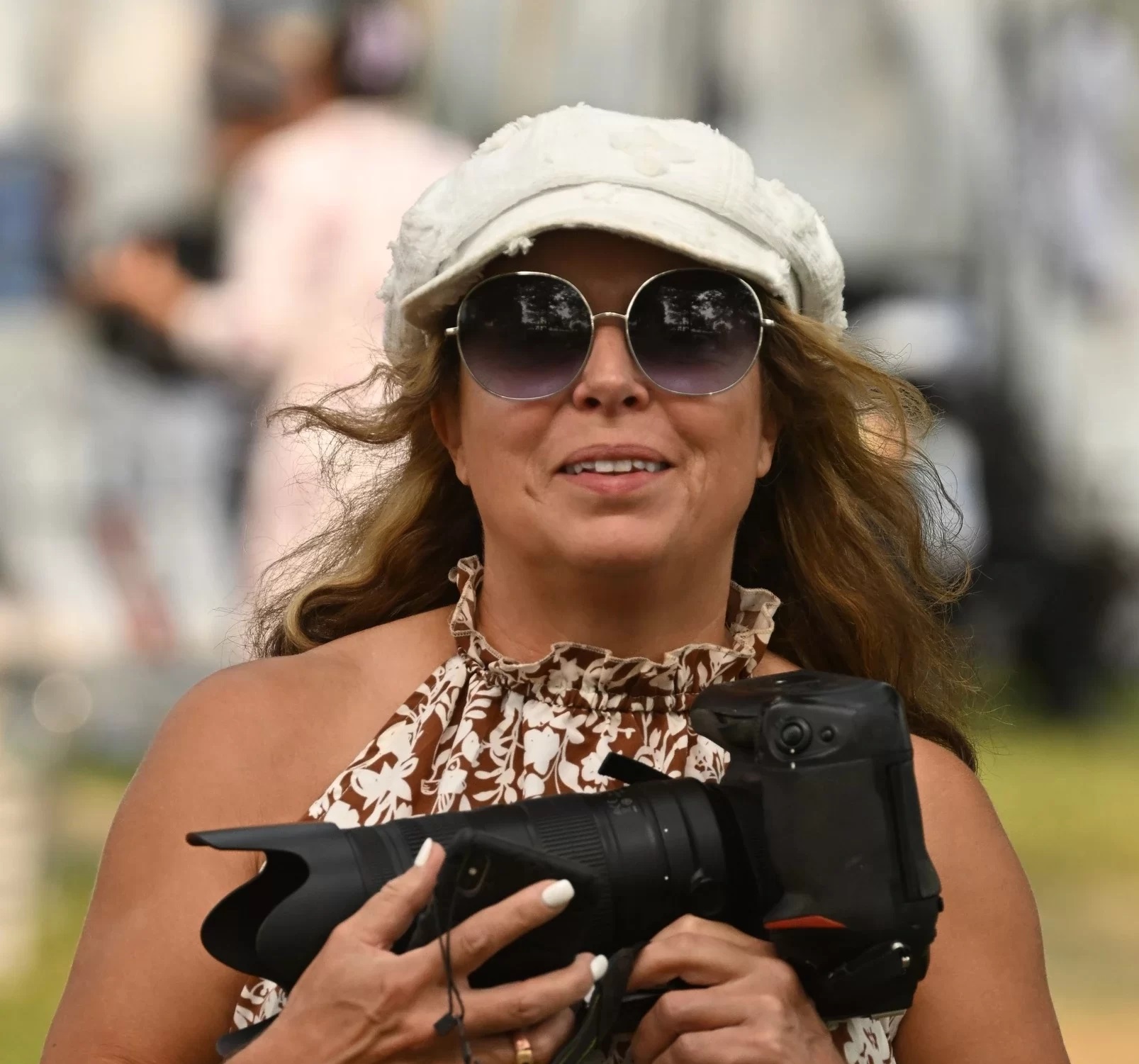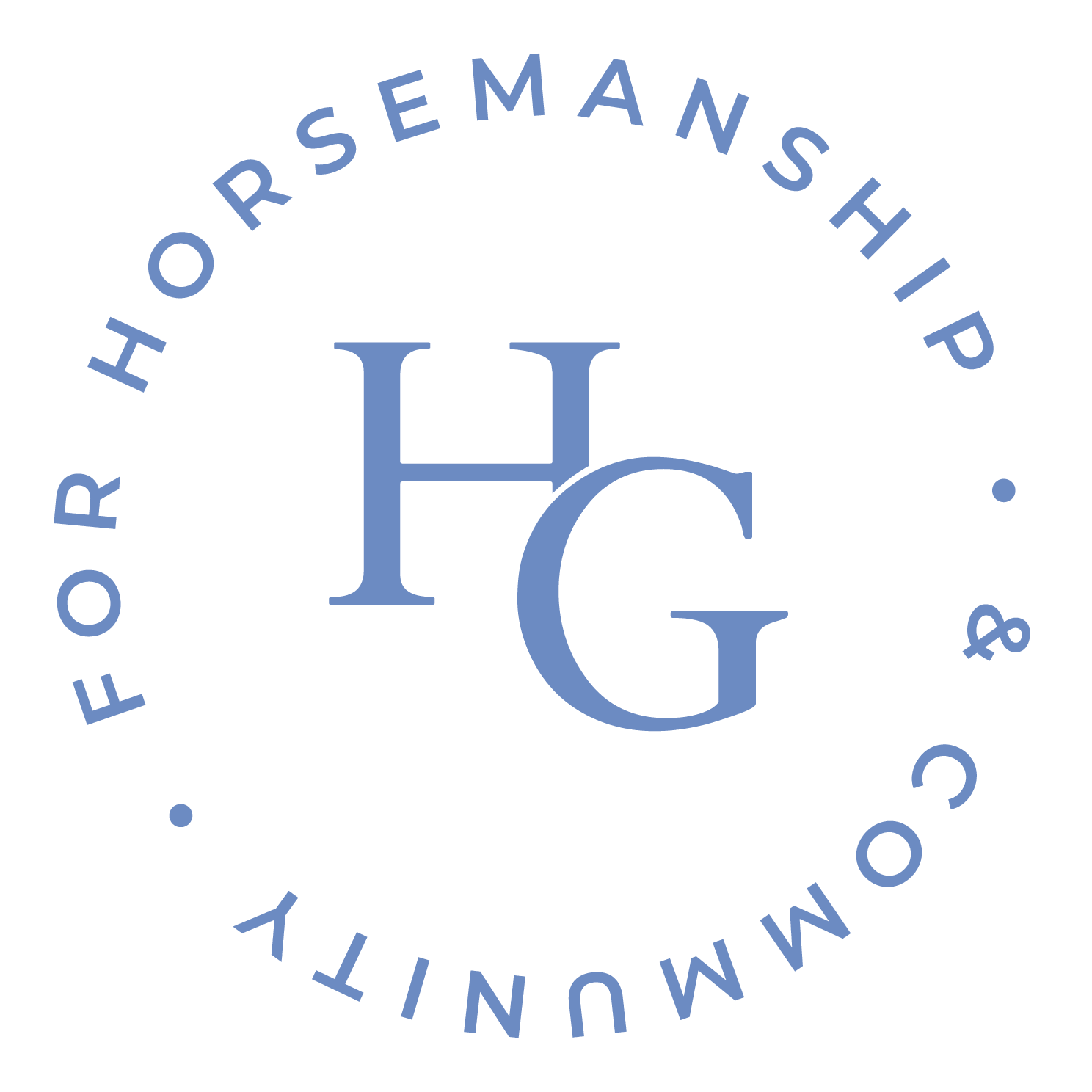Tessa Falanga got the best birthday present when she turned 10 – a package of riding lessons from her mother. Fast forward 22 years, and Falanga is at the height of the grooming profession working for the U.S. Olympian Karl Cook, who is based in California. She recently returned for a quick two-day vacation at home in New York, after a string of summer highs as her charge Caracole de la Roque took Europe by storm, with her second horse, Candy, rehearsing in her role as understudy.
A First Pony and the Realization that Destiny Was Not in the Hunter Ring
No one in Falanga’s family was involved in horses, but she would ride with her mother in the car past a local riding school most days, and it was not long before curiosity led her to make a request.
“I asked my mom when I was 10 if I could go and take some lessons because I really wanted to ride a horse,” Falanga said. “I started just once a week for a long time, and then twice a week, and then it just kept going on from there.”
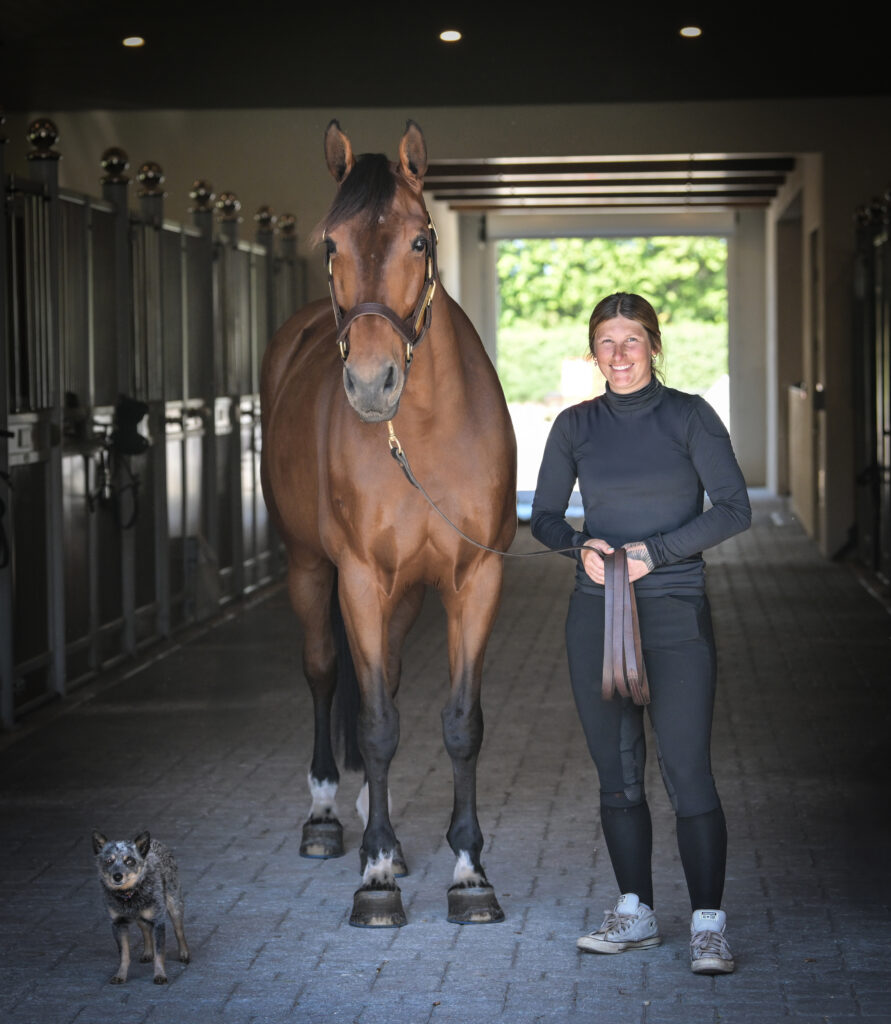
Falanga’s first pony came along when she was 12, and the fact that he was a paint and a Quarter Horse meant he was a better fit in the show jumping than the hunter ring. “He was a great pony, and I started doing jumpers and found that to be a bit more fun,” she said.
Work Triumphs Over Study
Falanga tried to go down an academic path. She signed up to study equine management when she was 18, but after just two semesters she realized it was not what she wanted.
“I thought,’You know what? I really want to go to work,’” she said. “And that’s what I did.”
Her first job was working for the Tromp family in North Salem. “They were all together at the time,” she said. “David, Mattias, and Emmy who were in their 20s – and obviously their parents. In your first job, you are just kind of like, ‘Whoa. What am I doing here? What’s going on?’ But that’s when you just start learning as you go. And watching and trying to catch on.”
She learned the ropes – how to clip, braid, and all the things that, “I do now and don’t think twice about,” she said. “It’s everyone’s first time, at some time. And you tend to forget those times, I think.”
Grooming Turned Out to be a Career
At first Falanga was unaware that grooming would become a serious vocation.
“It never really clicked that it was something that I could do as a career until I was maybe 25,” she said. “I was just doing it to make money, and I had fun. It was something to do because I didn’t know what else to do.”
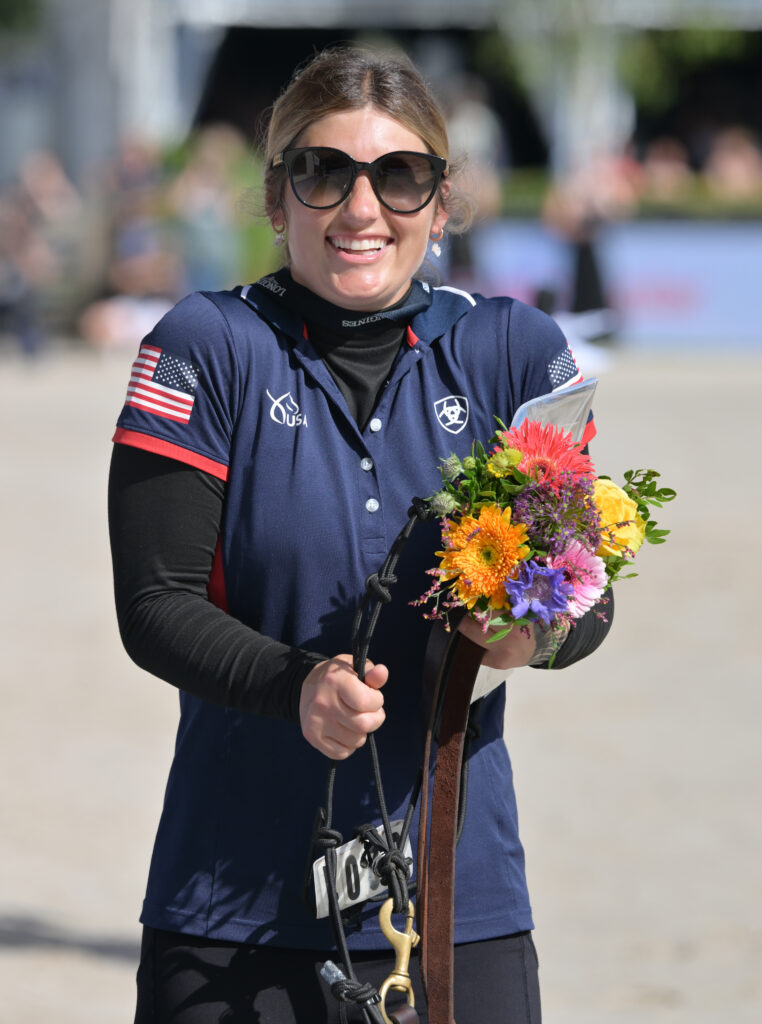
That attitude changed when she took a job working for the Dolan family in Wellington, Florida, and Oyster Bay, New York. “A light switch went off,” she said. “You can make this a career.”
Grooming as a profession may not always get the acknowledgement it deserves. Falanga feels strongly that employers can benefit significantly when they take the time to truly recognize a groom’s contribution.
“You get so much more out of people if you can say, ‘Yes, I care.’ But you actually have to do it. You can’t just pay lip service people and then not deliver,” she said. “It’s really important for grooms to feel like they matter. Because we are putting so much care into the horses, a little bit of care for the person goes much farther than what people might think.”
Grooming for Eric Navet Was a Two-Way Street
In 2021, Falanga went to California to work for French show jumping Olympic medalist Eric Navet. Working for such a renowned rider came with its own set of challenges.
“It was slightly intimidating,” she recalled. “But I think by going in with an open mind – and really listening and learning – was important. Because he has a lot of knowledge, and he is not shy about sharing, and that’s something that I really appreciate about him. Any question that you have, he’s going to answer. If he sees something that he wants to do differently, he’s going to tell you and in a very educational way. He wants you to ask. If you don’t know, ask.”
Falanga found Navet to be classical but open minded in his approach to horsemanship. “He definitely had his system, and it has obviously worked for him for a very long time,” she said. “But every horse is different, and he knows that. And what works for one doesn’t work for all. So that was also nice to see that it’s not his way or the highway. It’s whatever’s best for this horse. That’s what we’re going to do. And we would brainstorm together sometimes.”
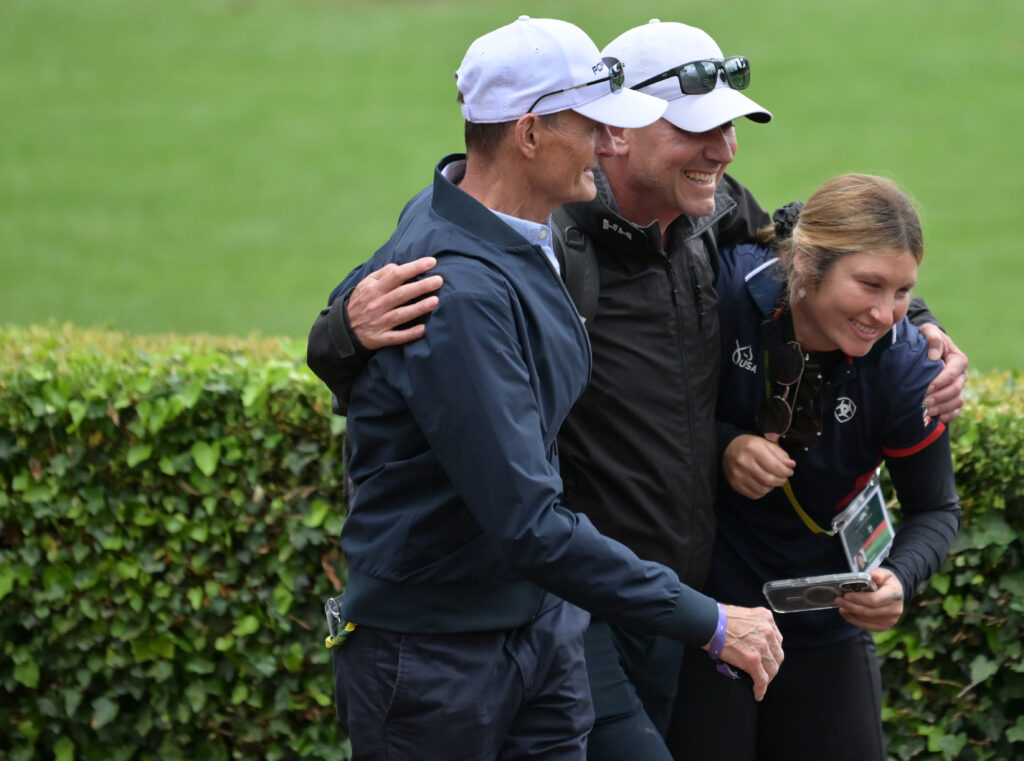
Working for Karl Cook Proved a Natural Transition
After Falanga had been with Navet for a year, he was leaving to return to France. A natural transition ensued as she went to work for Karl Cook – Navet’s protégé. Much of Cook’s approach had been formed by Navet’s mentoring with the additions brought in by Cook’s unique personality. “Karl’s mind is incredible,” said Falanga. “And he’s always trying to be innovative and finding new ways to do things or playing off of things that already exist.”
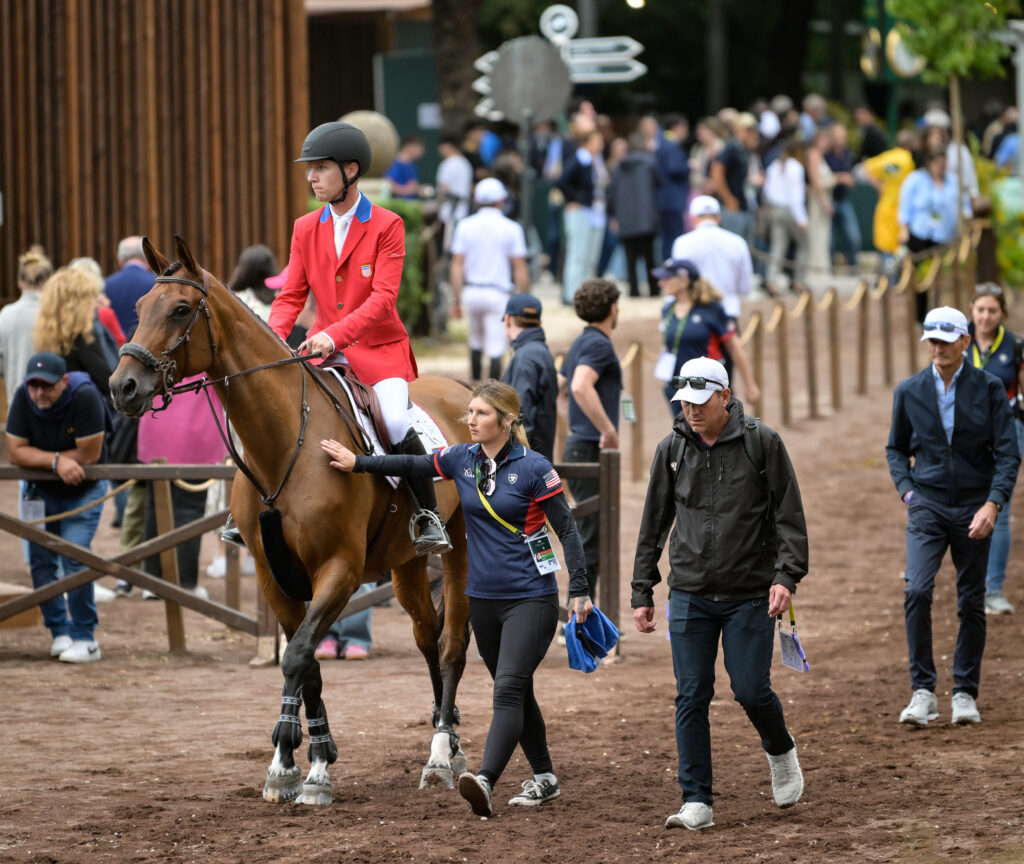
Cook’s horses also had their own quirks. “Karl has a tendency to buy horses that are spicy with their own mind, and sometimes they require an approach that is off the beaten path,” said Falanga.
In Cook’s barn grooms are assigned horses, and they stay with those horses. “They want you to know your horses inside and out,” she said. “And yes, everyone knows all the horses in the barn – you have to. But they really wanted to individualize care and have you spend time with your horses so that they can feel their best to give Karl the best result.”
Turnout Saves the Burnout
Caracole de la Roque aka Cara – recent winner with Cook of the Rolex Grand Prix CSI5* at the Falsterbo Horse Show in Sweden – is under Falanga’s care, along with her understudy, Candy. Cara, who has numerous accolades to her name showing with France’s Julien Epaillard and, since 2023, with Cook, is a particular fan of turnout. In France being turned out was a way of life for the Selle Francais mare, and she particularly enjoys the downtime. “She is turned out for as many hours as I can give her every day,” said Falanga.
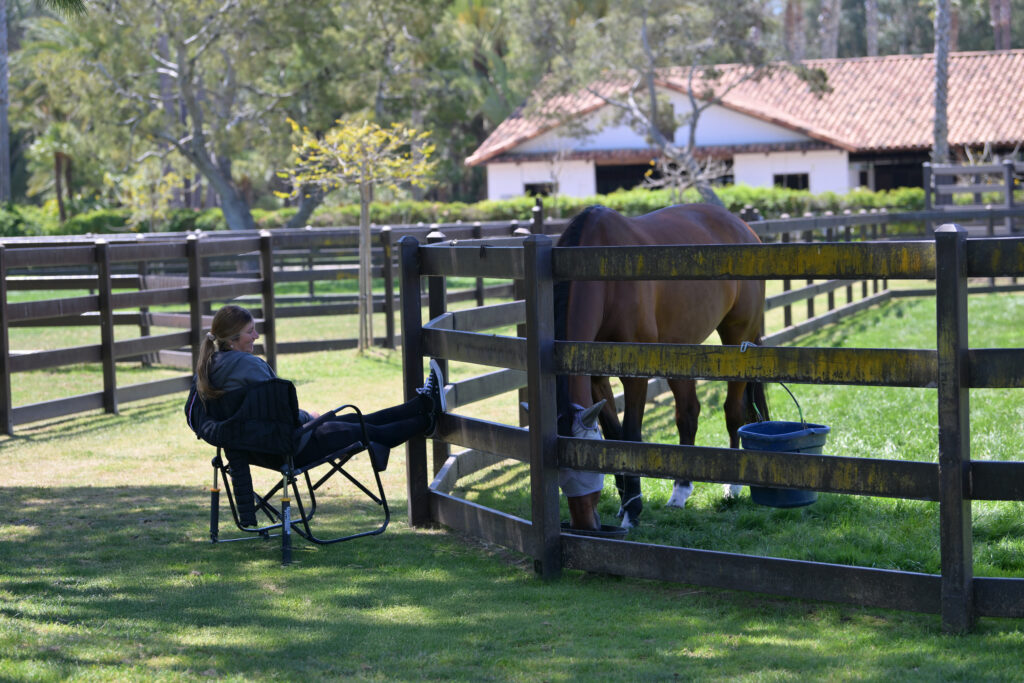
Overall turnout is advocated for all the horses in Cook’s barn, albeit some are more enthusiastic than others. “The grooms collectively and Karl all believe that turnout is very important,” Falanga said. “Every horse is different. Some of them hit two hours, and they want to come inside. No problem. If you’re done, you’re done. But we encourage them to stay out. Every horse goes outside. We don’t have one horse that does not go outside.”
Teamwork Makes the Dream Work
Much as the horses are assigned to individuals, the overall atmosphere in the barn is one of teamwork. “Karl wants the barn to be a fun place to be,” said Falanga. “He wants his grooms to be happy and the horses to be happy. And we’re not robots, and we don’t walk around with our mouths closed all day. We’re encouraged to be ourselves and obviously do our work – but it’s a very nice atmosphere to be in. It is a family-like atmosphere, and we’ve got a really great group of people. And we all help each other. It’s teamwork, and it’s all our goal to make the horses as happy as we can.”
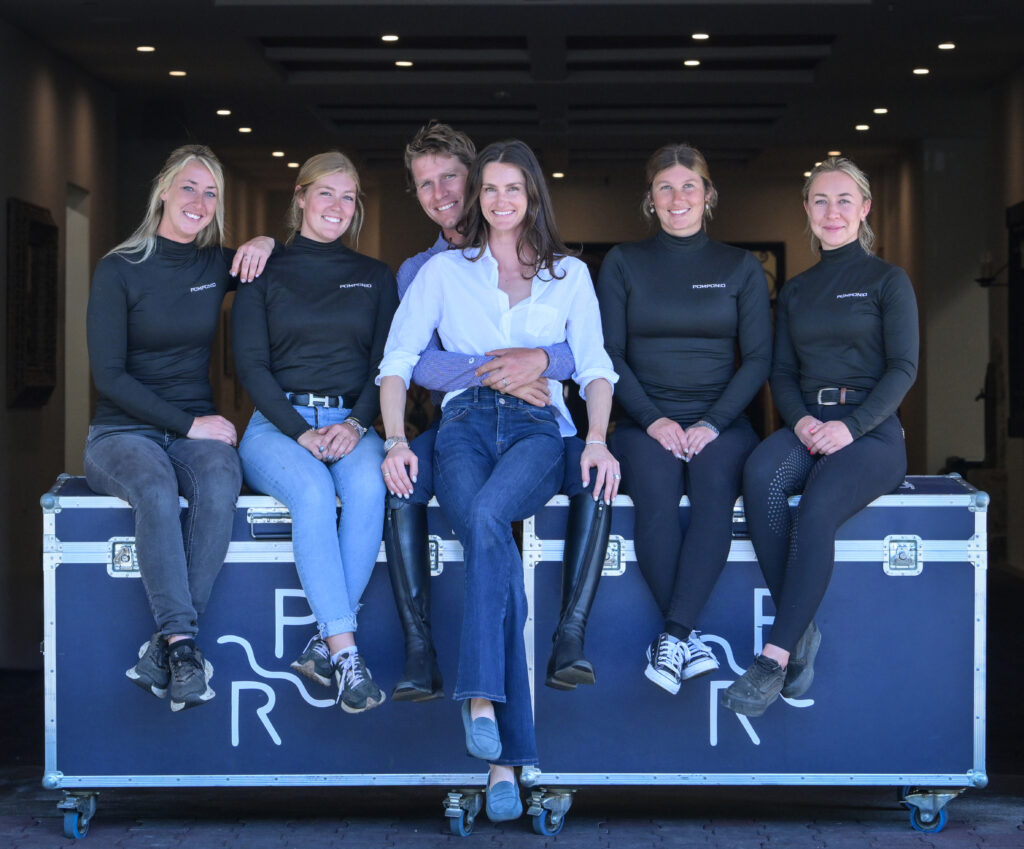
Ideas Are Welcomed And Suggestions Considered
“I like that I can use my brain,” said Falanga. “I can think about any part of the program – any part of the horse’s life and have an idea or to change something that might be better for them – and feel comfortable pitching it. And someone’s going to listen. Whether it gets a yes or a no, it doesn’t matter. It was listened and considered. If you have an idea, say it and don’t be shy. He might say, ‘Well, why do you want to do that?’ And you better have an answer. But that’s something that I really appreciate about the job.”
All photos courtesy of Alden Corrigan Media
